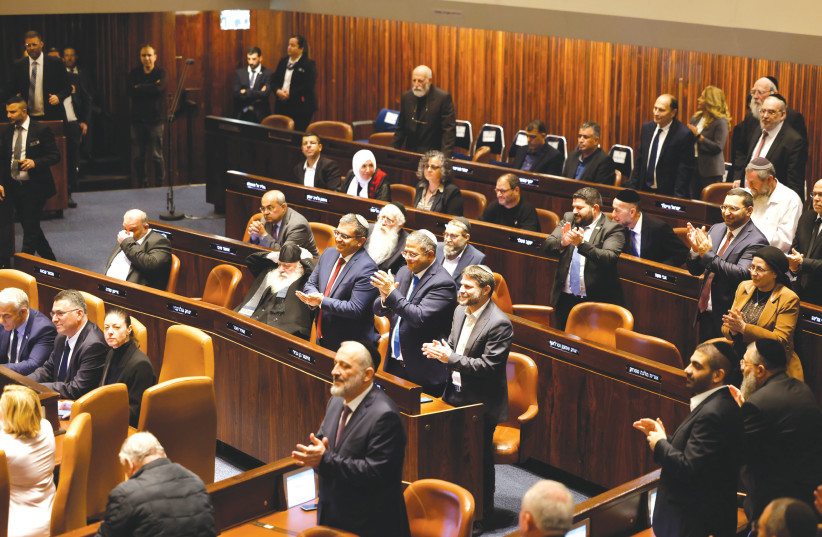Unity isn’t the priority. Balanced, truthful reporting is
There is an unspoken rule that journalists should not address their audience.
This includes the language we use in articles, of course. We cannot say “you” in an article, speaking to our readers. But it also means responding to the commentary we inevitably and consistently receive.
This article is breaking that big rule. I will respond to the most prominent criticism The Jerusalem Post has received in the past few weeks.
It is pretty simple: We receive waves upon waves of messages from readers disappointed that we, as a publication, are willing to publish criticism of our government at a time such as this.

Those same commentators say that now, more than ever, Israel should show a united front in the face of the evil of terrorists such as those of Hamas and Hezbollah, as well as antisemites around the world.
These criticisms do have some value, but not much, due to the simple fact that Israel is not unified. It has not been for a while, but especially not now.
Journalism’s primary role is to express the truth as cleanly as possible and free of subjectivity: no filters, no agendas. The truth, the whole truth, and nothing but the truth.
So who would we be, as a newspaper, to block from our coverage the simple fact that this country’s people were crumbling apart into separate factions prior to the war, and that has not changed in these 11 months?
This society has been divided for a long time, and it was only exemplified and extremized by the absurd judicial reforms proposed by the extremist right-wing government currently in power.
Then, already, the people were split. According to an August 2023 Israel Democracy Institute survey, while 68% of voters preferred some sort of compromise on judicial reform, 72% of coalition voters supported the reform, and 91% of opposition voters opposed it.
Then, the unimaginable happened: October 7.
Now, the public says Israel must be a united front. But how can it be when millions around the country believe one thing, and the government and its supporters believe another thing entirely?
That, of course, is how this war ends: with a deal or with an IDF follow-through.
What kind of publication would advertise only one side without the other? The public must be represented honestly in the media, and both groups exist – albeit one far more publicly and by the masses than the other.
BUT THEN come the arguments that we are showing all of one side and not the other.
Indeed, we have extensively covered the protests that have raged through Israel since Sunday. We found out from the IDF this week that the bodies of six hostages were tragically discovered, having been murdered by Hamas terrorists as recently as a few days before they were found.
The country imploded.
Hundreds of thousands of Israelis took to the streets of Tel Aviv, Jerusalem, Beersheba, Haifa, Ra’anana, and more to yell at the top of their lungs in anger and anguish.
According to the Hostage and Missing Families Forum, some 300,000 people gathered in Tel Aviv in a mass protest on Sunday, demanding an immediate hostage deal before more hostages are killed by Hamas.
So where would we be as a publication – what kind of ethical line would we be drawing – if we refused, on a skewed principle of projecting unity, to share the news?
Let’s say we were trying to send a message to our enemies. What would be better: to send an image of unity behind a government the majority of the world sees as wrong or to show that this country has a free press and independent journalism that can criticize and debate openly about the government’s actions? Uncritical, uniform support for the government during a crisis can lead to a lack of accountability and a failure to learn from mistakes.
Not to mention that we would be inaccurate. The public has the right to know the truth. Glossing over issues or presenting a monolithic pro-government narrative can undermine trust. Balanced reporting that explores different perspectives can help citizens make more informed judgments.
Fair, a delicate balance is required during a national security crisis. But the benefits of a vibrant free press outweigh the risks, as long as the reporting is responsible, well-researched, and seeks to strengthen national unity – something we try to do to the best of our abilities, here at the Post – rather than sow division.
Ultimately, the role of independent media is to hold those in power accountable, not to be a mouthpiece for the government. I’ll stick to that, thank you very much.
The writer is deputy editor-in-chief of The Jerusalem Post.





Comments are closed.